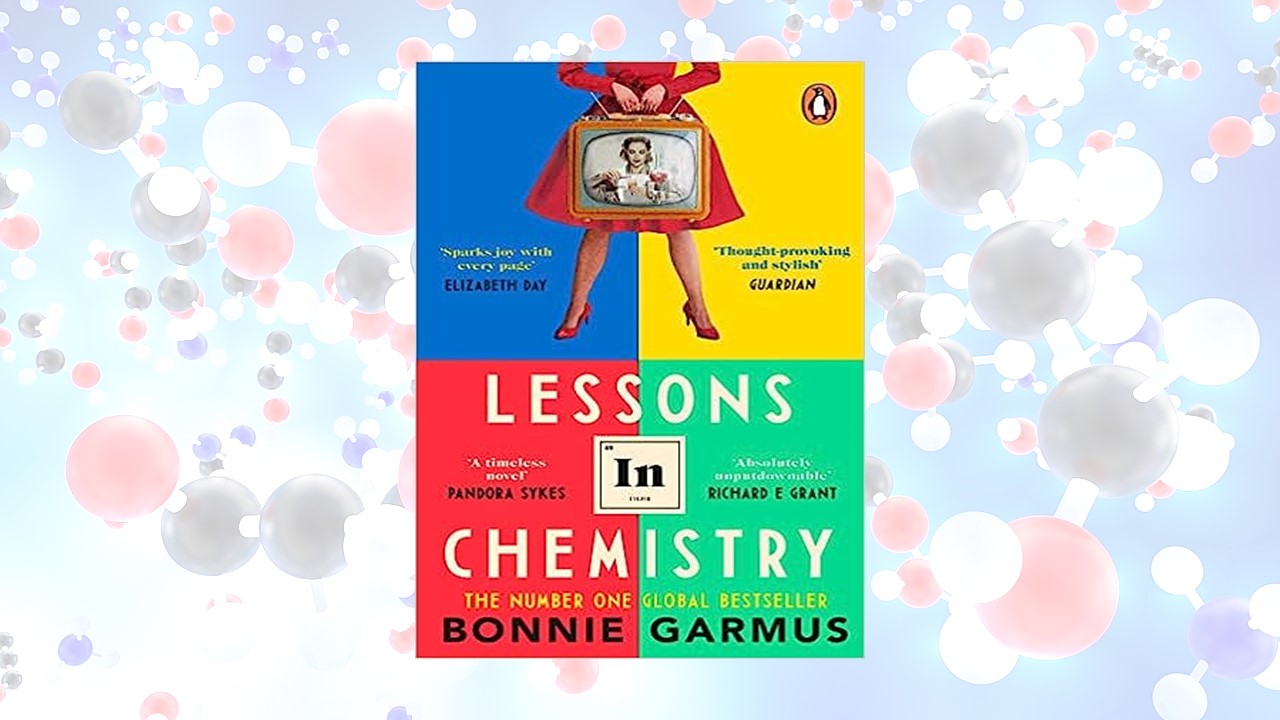Bonnie Garmus’s Lessons in Chemistry is a delightful read with a powerful message on the empowerment of women. It is said that society fears a woman who speaks her mind; Elizabeth Zott is that woman. She is unconventional, uncompromising, and a brilliant chemist. Her only handicap? Her gender.
Elizabeth is a woman in the 1960s in a male-dominated research institute. Most times she is mistaken to be a secretary or assumed to be someone fishing for a rich husband. Her work is often stolen, and her boss takes credit for her research.
At work one day, Elizabeth meets the love of her life, the Nobel-nominated Calvin Evans, who appreciates her intelligence and sees her for who she is. She ignores the rumours that she is using him to further her career.
Elizabeth views the world in black and white- she challenges stereotypes and societal constructs with science. She does not succumb to the pressure to settle down; she believes in carving her identity and retaining her name after marriage.
‘Why are women expected to trade their name like used cars, as if their previous names were just placeholders before they became actual people?’
There are many quotable lines in this book that will resonate with the women of today.
Fate has other plans for Elizabeth; Calvin dies unexpectedly, and she finds herself a single unwedded mother. This leads to her being fired from the research institute on moral grounds. She assures her boss that pregnancy isn’t contagious and asks him if the man would have been fired in such a case.
What stands out in the writing is how the simplest of prejudices are called out.
Later in the book, someone points out that most baby care books are written by men, and they wonder if their wives wrote it for them, instead.
Does a woman need a man to sound authoritative enough to make an impact?
After being fired, Elizabeth is determined to continue with her research from home while being a single parent to her daughter, Madeline. While trying to find a job to augment her income, she secures one as the host of a cooking show called Supper at Six.
When the girl is taken out of chemistry and expected to cook, she decides to put the chemistry back into the cooking.
Elizabeth refuses to dumb down the show, wear fancy dresses, or mix cocktails to promote it. She is very much herself, uses chemical names for ingredients, and explains cooking like a chemistry class, making women feel important about themselves and the work they do. She reminds them that there is nothing average about an average housewife.
Why is the expression ‘run to a store’ used in the context of women? Because it is a reference to the insane levels of hyper-productivity they are expected to operate at.
Elizabeth challenges the status quo and urges women to think beyond what they have been told so far and to act like scientists instead.
Elizabeth’s message of, “Children, set the table tonight. Let your mother have a moment to herself,” becomes popular.
Her show is a runaway hit inspiring women to shed inhibitions and follow their dreams. A mother of three decides to join med school to become a heart surgeon. Of course, the show does receive its share of brickbats too; but how Elizabeth plods ahead unaffected forms the rest of the story.
This book is also a story of sisterhood: Elizabeth’s neighbour Harriet is her rock and helps her raise little Madeline. Later in the book, a female colleague decides to team up with Elizabeth to help her fight the system. Wonderful things happen when women work together and set things right.
Elizabeth believes that when women understand chemistry, they understand how things work. CHEMISTRY IS CHANGE. She wonders why she can’t be treated as a colleague, a friend, and an equal. Men and women are created equals, but upbringing, education, and choices, create differences and reinforce the inequalities.
It all begins with the distinction between the colours pink and blue.
The book states that the division between men and women at a chemical atomic level is senseless; it is something that has been propagated at a cultural level and does not have a scientific basis.
The story may be set in the sixties, but the messages are relevant even today. Gender-based discrimination, unequal funding in STEM, women’s achievements being downplayed, sexual violence, the expectations to favour family over work; aren’t these prejudices still prevalent? It is unfortunate that even after sixty years, the more the things change, the more they remain the same.
If there is one book you want to read this year, let it be ‘Lessons in Chemistry;’ it is heartfelt, poignant, profound, and unapologetic. May it inspire you to understand chemistry and usher in change.




